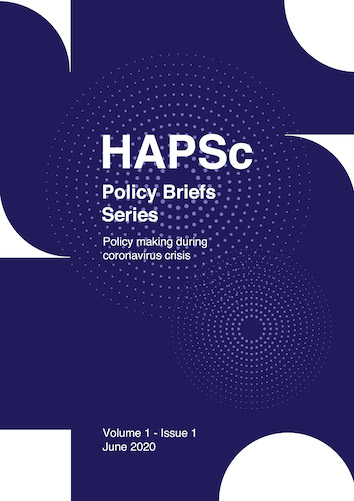Mexico’s “Fourth Transformation” after the pandemic: Windows of opportunity for adaptative policies
Resumen
The spread of the SARS-CoV-2 virus, the infectious agent that caused COVID-19, has put a level of pressure on governments and their structures only seen in times of war. The governments of the world face a health challenge that will have profound economic consequences, which requires an effective response to contain the contagions of the disease and, at the same time, an unprecedented economic effort to preserve jobs, value chains and lifestyles. This reality has reached Mexico during the administration of Andrés Manuel López Obrador, who, since the beginning of his presidential term on December 1, 2018, has launched an ambitious set of austerity measures aimed at releasing resources for cash transfer programs and infrastructure projects. The struggle between a model that bets on reducing the size of the State and that of public spending and an economic reality that will demand more public investment and state intervention will define the course of Mexico's future public policies. The authors discuss a new world full of windows of opportunity to promote a more ambitious social, fiscal and security policy agenda, on which depends the Mexican government ability to avoid the worst social consequences of the pandemic and the economic crisis.
Abstract (in Spanish)
La propagación del virus SARS-CoV-2, el agente causante de COVID-19, ha ejercido un nivel de presión sobre los gobiernos y sus estructuras como solamente se había visto en tiempos de guerra. Los gobiernos del mundo enfrentan un desafío sanitario que tendrá profundas consecuencias económicas, lo que demanda una respuesta eficaz para contener los contagios de la enfermedad y, al mismo tiempo, un esfuerzo económico sin precedentes para preservar empleos, cadenas de valor y estilos de vida. Esta realidad ha llegado a México durante la administración de Andrés Manuel López Obrador, quien, desde el comienzo de su mandato presidencial el 1 de diciembre de 2018, ha puesto en marcha un ambicioso conjunto de medidas de austeridad a fin de liberar recursos para programas de transferencias y obras de infraestructura. La pugna entre un modelo que apuesta por reducir el gasto del Estado mexicano y una realidad económica que demandará mayor inversión e intervención estatal definirá el rumbo de la política pública de México. Los autores discuten sobre un mundo nuevo lleno de ventanas de oportunidad para impulsar una agenda de política social, fiscal y de seguridad más ambiciosa, de cuyo aprovechamiento depende el poder evitar las peores consecuencias sociales del binomio pandemia-crisis económica.
Article Details
- Cómo citar
-
Morales Oyarvide, C., & Villalpando Acuña, A. (2020). Mexico’s “Fourth Transformation” after the pandemic: Windows of opportunity for adaptative policies. HAPSc Policy Briefs Series, 1(1), 53–59. https://doi.org/10.12681/hapscpbs.24948
- Sección
- Articles

Esta obra está bajo una licencia internacional Creative Commons Atribución 4.0.
Authors retain copyright and grant the journal right of first publication with the work simultaneously licensed under a Creative Commons Attribution License that allows others to share the work with an acknowledgement of the work's authorship and initial publication in this journal.


